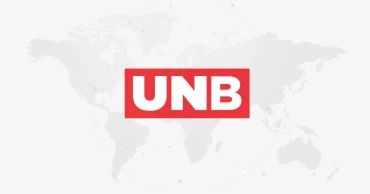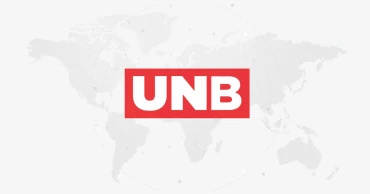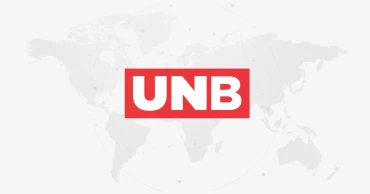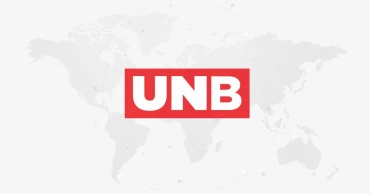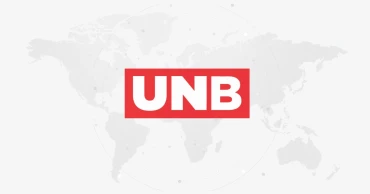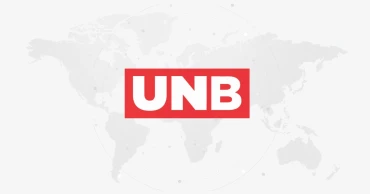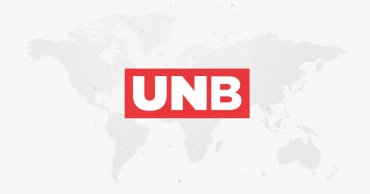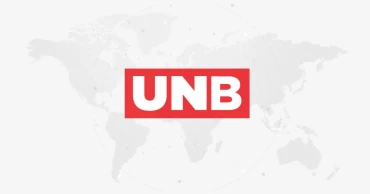Thousands around the world report ChatGPT outage
Thousands of ChatGPT users around the world were left frustrated earlier today after the popular AI chatbot experienced a major outage.
According to DownDetector, a website that tracks online service outages, over 3,000 users reported issues with ChatGPT, reports The Sun.
Many users took to social media to express their frustration, with one user on X (formerly Twitter) stating: “Hey ChatGPT - wasn't expecting you to be down when I chose you. Make it quick.”
Read more: AI tool capable of classifying brain tumors within hours: Australian researchers
OpenAI, the developers of ChatGPT, acknowledged the outage and released a statement saying: “We are currently investigating this issue.”
The outage appears to have been resolved as of this time. However, it highlights the growing reliance on AI-powered services and the disruption that can occur when these services go offline, added the report.
1 year ago
Arafat criticises US police response to peaceful campus protests for Palestinian rights
State Minister for Information and Broadcasting Mohammad A. Arafat has voiced concerns over the actions of police during peaceful demonstrations at various US universities, describing the use of force as “disproportionate” and “inappropriate.” These protests, primarily led by students and faculty members, were organised to support Palestinian rights.
“The rallies are mostly being conducted peacefully; there hasn't been any violence, arson, or killing of cops, children, or women, unlike what the BNP-Jamaat arsonists did in Bangladesh,” Arafat stated in a post on X, formerly known as Twitter.
The protests have taken place across numerous prestigious US college campuses, with participants advocating for the freedom of the Palestinian people. Arafat emphasised the peaceful nature of these demonstrations, highlighting the absence of violence and arson, which are often associated with protests elsewhere.
Columbia University students vow to continue anti-war protest amid standoff with administrators.
“It’s only some students and professors who are protesting against what they believe is wrong. There was no sign of violence or arson,” Arafat reiterated.
Despite the peaceful conduct of the protesters, the response by law enforcement has been notably aggressive, according to Arafat. The number of police forces seen to contain the people shows no respect for protests by civilians, he observed.
Reflecting on how such situations are handled in Bangladesh, Arafat speculated on the reaction of the US administration to similar circumstances. “I wonder what the US administration would do in the face of BNP-Jamaat violence and arson in the name of the so-called protest that they displayed a few months ago to impede the election and obstruct the democratic process in Bangladesh,” the state minister said.
Bangladesh always stands by people of Palestine: Environment Minister
Arafat condemned violence, stating, “I strongly believe that there is no place for violence in democracy.”
He also shared a distressing account of a university professor who, despite her academic credentials from the University of California, Berkeley, was mistreated by police. “Unlike the BNP-Jamaat terrorists in Bangladesh, she did not seem like an extremist, getting herself indulging in violence or arson,” he explained. The professor was reportedly verbally abused and violently arrested.
Arafat concluded by affirming the fundamental democratic rights to assembly and protest, which he argued should be respected universally: “The right to assembly and the right to protest need to be respected in all democracies.”
Israel-Hamas war protesters and police clash on Texas campus, Columbia University begins suspensions
1 year ago
Europe's sweeping rules for tech giants have kicked in. Here's how they work
Google, Facebook, TikTok and other Big Tech companies operating in Europe must comply with one of the most far-reaching efforts to clean up what people see online.
The European Union's groundbreaking new digital rules took effect Friday for the biggest platforms. The Digital Services Act is part of a suite of tech-focused regulations crafted by the 27-nation bloc — long a global leader in cracking down on tech giants.
Also read : Technology should be smart, people-friendly, cost-effective: Speakers
The DSA is designed to keep users safe online and stop the spread of harmful content that's either illegal or violates a platform's terms of service, such as promotion of genocide or anorexia. It also looks to protect Europeans' fundamental rights like privacy and free speech.
Some online platforms, which could face billions in fines if they don't comply, already have made changes.
Also read : Scientific Advisory Board for Independent Advice on Breakthroughs in Science and Technology
Here's a look at what has changed:
WHICH PLATFORMS ARE AFFECTED?
So far, 19. They include eight social media platforms: Facebook, TikTok, Twitter, YouTube, Instagram, LinkedIn, Pinterest and Snapchat.
There are five online marketplaces: Amazon, Booking.com, China's Alibaba AliExpress and Germany's Zalando.
Mobile app stores Google Play and Apple's App Store are subject, as are Google's Search and Microsoft's Bing search engine.
Also read : Walton to hold first-ever mega 'International Advanced Components and Technology Expo' in August
Google Maps and Wikipedia round out the list.
WHAT ABOUT OTHER ONLINE COMPANIES?
The EU's list is based on numbers submitted by the platforms. Those with 45 million or more users — or 10% of the EU's population — face the DSA's highest level of regulation.
Brussels insiders, however, have pointed to some notable omissions, like eBay, Airbnb, Netflix and even PornHub. The list isn't definitive, and it's possible other platforms may be added later on.
Any business providing digital services to Europeans will eventually have to comply with the DSA. They will face fewer obligations than the biggest platforms, however, and have another six months before they must fall in line.
WHAT'S CHANGING?
Platforms have rolled out new ways for European users to flag illegal online content and dodgy products, which companies will be obligated to take down quickly and objectively.
The DSA "will have a significant impact on the experiences Europeans have when they open their phones or fire up their laptops," Nick Clegg, Meta's president for global affairs, said in a blog post.
Facebook and Instagram's existing tools to report content will be easier to access. Amazon opened a new channel for reporting suspect goods.
TikTok gave users an extra option for flagging videos, such as for hate speech and harassment, or frauds and scams, which will be reviewed by an additional team of experts, according to the app from Chinese parent company ByteDance.
Google is offering more "visibility" into content moderation decisions and different ways for users to contact the company. It didn't offer specifics. Under the DSA, Google and other platforms have to provide more information behind why posts are taken down.
Facebook, Instagram, TikTok and Snapchat also are giving people the option to turn off automated systems that recommend videos and posts based on their profiles. Such systems have been blamed for leading social media users to increasingly extreme posts.
The DSA also prohibits targeting vulnerable categories of people, including children, with ads. Platforms like Snapchat and TikTok will stop allowing teen users to be targeted by ads based on their online activities.
Google will provide more information about targeted ads shown to people in the EU and give researchers more access to data on how its products work.
IS THERE PUSHBACK?
Zalando, a German online fashion retailer, has filed a legal challenge over its inclusion on the DSA's list of the largest online platforms, arguing that it's being treated unfairly.
Nevertheless, Zalando is launching content flagging systems for its website even though there's little risk of illegal material showing up among its highly curated collection of clothes, bags and shoes.
The company has supported the DSA, said Aurelie Caulier, Zalando's head of public affairs for the EU.
"It will bring loads of positive changes" for consumers, she said. But "generally, Zalando doesn't have systemic risk (that other platforms pose). So that's why we don't think we fit in that category."
Amazon has filed a similar case with a top EU court.
WHAT IF COMPANIES DON'T FOLLOW THE RULES?
Officials have warned tech companies that violations could bring fines worth up to 6% of their global revenue — which could amount to billions — or even a ban from the EU.
"The real test begins now," said European Commissioner Thierry Breton, who oversees digital policy. He vowed to "thoroughly enforce the DSA and fully use our new powers to investigate and sanction platforms where warranted."
But don't expect penalties to come right away for individual breaches, such as failing to take down a specific video promoting hate speech.
Instead, the DSA is more about whether tech companies have the right processes in place to reduce the harm that their algorithm-based recommendation systems can inflict on users. Essentially, they'll have to let the European Commission, the EU's executive arm and top digital enforcer, look under the hood to see how their algorithms work.
EU officials "are concerned with user behavior on the one hand, like bullying and spreading illegal content, but they're also concerned about the way that platforms work and how they contribute to the negative effects," said Sally Broughton Micova, an associate professor at the University of East Anglia.
That includes looking at how the platforms work with digital advertising systems, which could be used to profile users for harmful material like disinformation, or how their livestreaming systems function, which could be used to instantly spread terrorist content, said Broughton Micova, who's also academic co-director at the Centre on Regulation in Europe, a Brussels-based think tank.
Big platforms have to identify and assess potential systemic risks and whether they're doing enough to reduce them. These assessments are due by the end of August and then they will be independently audited.
The audits are expected to be the main tool to verify compliance — though the EU's plan has faced criticism for lacking details that leave it unclear how the process will work.
WHAT ABOUT THE REST OF THE WORLD?
Europe's changes could have global impact. Wikipedia is tweaking some policies and modifying its terms of use to provide more information on "problematic users and content." Those alterations won't be limited to Europe and "will be implemented globally," said the nonprofit Wikimedia Foundation, which hosts the community-powered encyclopedia.
"The rules and processes that govern Wikimedia projects worldwide, including any changes in response to the DSA, are as universal as possible," it said in a statement.
Snapchat said its new reporting and appeal process for flagging illegal content or accounts that break its rules will be rolled out first in the EU and then globally in the coming months.
It's going to be hard for tech companies to limit DSA-related changes, said Broughton Micova, adding that digital ad networks aren't isolated to Europe and that social media influencers can have global reach.
The regulations are "dealing with multichannel networks that operate globally. So there is going to be a ripple effect once you have kind of mitigations that get taken into place," she said.
2 years ago
Musk, new Twitter CEO Linda Yaccarino spar over content moderation during on-stage interview
On Friday, Elon Musk announced that NBC Universal's Linda Yaccarino will serve as the new CEO of Twitter. Yaccarino is a longtime advertising executive credited with integrating and digitizing ad sales at NBCU. Her challenge now will be to woo back advertisers that have fled Twitter since Musk acquired it last year for $44 billion.
Since taking ownership, Musk has fired thousands of Twitter employees, largely scrapped the trust-and-safety team responsible for keeping the site free of hate speech, harassment and misinformation, and blamed others — particularly mainstream media organizations, which he views as untrustworthy “competitors” to Twitter for ad dollars — for exaggerating Twitter's problems.
In April, the two met for an on-stage conversation at a marketing convention in Miami Beach, Florida. Here are some highlights of their conversation:
MUSK AND YACCARINO SPAR OVER CONTENT MODERATION
The Miami discussion was cordial, although both participants drew some distinct lines in the sand. On a few occasions, Yaccarino steered the conversation toward issues of content moderation and the apparent proliferation of hate speech and extremism since Musk took over the platform. She couched her questions in the context of whether Musk could help advertisers feel more welcome on the platform.
At one point, she asked if Musk was willing to let advertisers “influence” his vision for Twitter, explaining that it would help them get more excited about investing more money — "product development, ad safety, content moderation — that's what the influence is."
Musk shut her down. “It’s totally cool to say that you want to have your advertising appear in certain places in Twitter and not in other places, but it is not cool to to try to say what Twitter will do," he said. “And if that means losing advertising dollars, we lose it. But freedom of speech is paramount.”
MUSK REPEATS: NO SPECIAL INFLUENCE FOR ADVERTISERS
Yaccarino returned to the issue a few moments later when she asked Musk if he planned to reinstate the company's “influence council,” a once-regular meeting with marketing executives from several of Twitter's major advertisers. Musk again demurred.
“I would be worried about creating a backlash among the public,” he said. “Because if the public thinks that their views are being determined by, you know, a small number of (marketing executives) in America, they will be, I think, upset about that."
Musk went on to acknowledge that feedback is important, and suggested Twitter should aim for a “sensible middle ground” that ensures the public “has a voice” while advertisers focus on the ordinary work of improving sales and the perception of their brands.
PRESSING ELON ON HIS OWN TWEETS
Musk didn't pass up the opportunity to sell the assembled marketers a new plan to solve Twitter's problems with objectionable tweets, which the company had announced the day before. Musk called the policy “freedom of speech but not freedom of reach," describing it as a way to limit the visibility of hate speech and similar problems without actually removing rule-breaking tweets.
Yaccarino took a swing. “Does it apply to your tweets?” Musk has a history of posting misinformation and occasionally offensive tweets, often in the early morning hours.
Musk acknowledged that it does, adding that his tweets can also be tagged with “community notes” that provide additional context to tweets. He added that his tweets receive no special boosts from Twitter.
“Will you agree to be more specific and not tweet after 3 a.m.?" Yaccarino asked.
“I will aspire to tweet less after 3 a.m.,” Musk replied.
2 years ago
Big Tech crackdown looms as EU, UK ready new rules
TikTok, Twitter, Facebook, Google, Amazon and other Big Tech companies are facing rising pressure from European authorities as London and Brussels advanced new rules Tuesday to curb the power of digital companies.
The U.K. government unveiled draft legislation that would give regulators more power to protect consumers from online scams and fake reviews and boost digital competition.
Meanwhile, the European Union was set to release a list of the 19 biggest online platforms and search engines that face extra scrutiny and obligations under the 27-nation bloc's landmark digital rules taking effect later this year.
Also Read: TikTok attorney: China can’t get U.S. data under plan
The updates help solidify Europe’s reputation as the global leader in efforts to rein in the power of social media companies and other digital platforms.
Britain's Digital Markets, Competition and Consumers bill proposes giving watchdogs more teeth to draw down the dominance of tech companies, backed by the threat of fines worth up to 10% of their annual revenue.
Under the proposals, online platforms and search engines can be required to give rivals access to their data or be more transparent about how their app stores and marketplaces work.
The rules would make it illegal to hire someone to write a fake review or allow the posting of online consumer reviews “without taking reasonable steps" to verify they're genuine. They also would make it easier for consumers get out of online subscriptions.
The new rules, which still need go through the legislative process and secure parliamentary approval, would apply only to companies with 25 million pounds in global revenue or 1 billion pounds in U.K. revenue.
Also Read: Twitter restores blue tick to high-profile accounts with over 1 million followers
Also Tuesday, the European Commission, the EU's executive arm, is set to designate 19 of the biggest online platforms or search engines that will have to take extra steps to clean up illegal content and disinformation and keep users safe online.
Violations of the bloc’s new Digital Services Act could result in fines worth up to 6% of a company’s annual global revenue — amounting to billions of dollars — or even a ban on operating in the EU.
Google, Twitter, TikTok, Apple, Facebook and Instagram have already disclosed that they have more than 45 million users in Europe, putting them over the bloc's threshold.
2 years ago
Twitter removes blue tick from main New York Times account
Twitter has removed the verification check mark on the main account of The New York Times, one of CEO Elon Musk's most despised news organizations.
The removal comes as many of Twitter’s high-profile users are bracing for the loss of the blue check marks that helped verify their identity and distinguish them from impostors on the social media platform.
Musk, who owns Twitter, set a deadline of Saturday for verified users to buy a premium Twitter subscription or lose the checks on their profiles. The Times said in a story Thursday that it would not pay Twitter for verification of its institutional accounts.
Early Sunday, Musk tweeted that the Times' check mark would be removed. Later he posted disparaging remarks about the newspaper, which has aggressively reported on Twitter and on flaws with partially automated driving systems at Tesla, the electric car company, which he also runs.
Also Read: Twitter now valued at less than $20bn: Elon Musk suggests
Other Times accounts such as its business news and opinion pages still had either blue or gold check marks on Sunday, as did multiple reporters for the news organization.
“We aren’t planning to pay the monthly fee for check mark status for our institutional Twitter accounts," the Times said in a statement Sunday. "We also will not reimburse reporters for Twitter Blue for personal accounts, except in rare instances where this status would be essential for reporting purposes," the newspaper said in a statement Sunday.
The Associated Press, which has said it also will not pay for the check marks, still had them on its accounts at midday Sunday.
Twitter did not answer emailed questions Sunday about the removal of The New York Times check mark.
The costs of keeping the check marks ranges from $8 a month for individual web users to a starting price of $1,000 monthly to verify an organization, plus $50 monthly for each affiliate or employee account. Twitter does not verify the individual accounts to ensure they are who they say they are, as was the case with the previous blue check doled out to public figures and others during the platform’s pre-Musk administration.
While the cost of Twitter Blue subscriptions might seem like nothing for Twitter’s most famous commentators, celebrity users from basketball star LeBron James to Star Trek’s William Shatner have balked at joining. Seinfeld actor Jason Alexander pledged to leave the platform if Musk takes his blue check away.
The White House is also passing on enrolling in premium accounts, according to a memo sent to staff. While Twitter has granted a free gray mark for President Joe Biden and members of his Cabinet, lower-level staff won’t get Twitter Blue benefits unless they pay for it themselves.
“If you see impersonations that you believe violate Twitter’s stated impersonation policies, alert Twitter using Twitter’s public impersonation portal,” said the staff memo from White House official Rob Flaherty.
Alexander, the actor, said there are bigger issues in the world but without the blue mark, “anyone can allege to be me” so if he loses it, he’s gone.
“Anyone appearing with it=an imposter. I tell you this while I’m still official,” he tweeted.
After buying Twitter for $44 billion in October, Musk has been trying to boost the struggling platform’s revenue by pushing more people to pay for a premium subscription. But his move also reflects his assertion that the blue verification marks have become an undeserved or “corrupt” status symbol for elite personalities, news reporters and others granted verification for free by Twitter’s previous leadership.
Along with shielding celebrities from impersonators, one of Twitter’s main reasons to mark profiles with a blue check mark starting about 14 years ago was to verify politicians, activists and people who suddenly find themselves in the news, as well as little-known journalists at small publications around the globe, as an extra tool to curb misinformation coming from accounts that are impersonating people. Most “legacy blue checks” are not household names and weren’t meant to be.
One of Musk’s first product moves after taking over Twitter was to launch a service granting blue checks to anyone willing to pay $8 a month. But it was quickly inundated by impostor accounts, including those impersonating Nintendo, pharmaceutical company Eli Lilly and Musk’s businesses Tesla and SpaceX, so Twitter had to temporarily suspend the service days after its launch.
The relaunched service costs $8 a month for web users and $11 a month for users of its iPhone or Android apps. Subscribers are supposed to see fewer ads, be able to post longer videos and have their tweets featured more prominently.
2 years ago
Rare shipment from Pakistan reaches Israel
An American Jewish organization celebrated the “first shipment” of food supplies from Pakistan that arrived in Israel.
The trade last week included Pakistani-Jewish businessman Fishel BenKhald and three Israeli businesses, according to a statement issued by the American Jewish Congress from its New York offices, reports Voice of America.
BenKhald resides in Karachi, where he manages a Jewish kosher certification business for food makers selling to international markets. Last Tuesday, he announced the unusual trade on Twitter, the VOA report said.
The trader shared a video of his products, which included dates, dried fruit, and spices, on display in a Jerusalem market. The video has subsequently received over 640,000 views.
Read More: India-Bangladesh trade using rupee instead of US dollar could start soon
"I was not expecting it to be taken that big of a deal," BenKhald said in written comments to VOA, adding that this was not the first export of Pakistani products to Israel.
"The Israeli government and buyers have no problem accepting the direct shipment from Pakistan,” he said, adding that Israel does not have a problem sending payments to Pakistani banks, said the report.
BenKhald's attempt was largely lauded by Pakistani Twitter users, who included journalists, politicians, and businesses, some of whom sought his assistance on how to market their products to Israel. He tried to respond to every communication, it added.
Pakistani officials did not immediately comment on the unusual exchange.
Read More: Trade and investment opportunities opening up between Bangladesh, Brazil
Islamabad has no diplomatic relations with Israel and refuses to recognize it as a sovereign state until the state of Palestine is created, a position shared by many Muslim-majority nations.
Nevertheless, the United Arab Emirates and Bahrain established ties with Israel in 2020 as part of the Abraham Accords, which were brokered by the United States. Sudan and Morocco followed suit.
"Trade exhibits hosted by the UAE helped Pakistani and Israeli businessmen conclude a deal that enabled this week's Pakistani shipment to Israel," the American Jewish Congress noted. "We welcome this small step that can have wider implications for Israeli and Pakistani economies and for the region at large."
Pakistan is a recognized nuclear power, while Israel is commonly believed to possess nuclear weapons. Since their foreign ministers met publicly in 2005, the two nations have had secret discussions on security matters. Pakistani Islamist organizations and right-wing parties are adamantly opposed to establishing formal relations with Israel over the Palestinian issue, the report also said.
Read More: Traders fined in Faridpur for selling meat in violation of price list
Pakistani people are barred from visiting Israel since their passport plainly states that they are valid for all nations except Israel.
2 years ago
Twitter now valued at less than $20bn: Elon Musk suggests
Twitter CEO Elon Musk has reportedly indicated that the social media platform is now valued at less than $20 billion.
According to technology news websites Platformer and the Information, who broke the story first, the estimate of Twitter’s valuation was based on Musk’s offer of equity grants to employees, reports BBC.
A poo emoji was automatically sent in response to a BBC request for comment via Twitter’s press office email account, after Musk’s announcement of the strategy in a tweet earlier this month.
Read More: Elon Musk apologizes after mocking disabled Twitter employee
Meanwhile, Twitter reports that parts of the source code that powers multi-billionaire Elon Musk’s social media platform have been leaked online.
It claimed that the code was uploaded to the Microsoft-owned website GitHub, where developers share code, the report said.
After Twitter made a request for its removal, it was taken down.
Read More: Elon Musk hopes to have Twitter CEO toward the end of year
After cutting more than a third of Twitter’s staff and dealing with a loss of advertising since acquiring the company in October of last year, the leak presented Musk with a new challenge, said the report.
2 years ago
Elon Musk apologizes after mocking disabled Twitter employee
— If you’re not told you are fired, are you really fired? At Twitter, probably. And then, sometimes, you get your job back — if you want it.
Haraldur Thorleifsson, who until recently was employed at Twitter, logged in to his computer last Sunday to do some work — only to find himself locked out, along with 200 others.
He might have figured, as others before him have in the chaotic months of layoffs and firings since Elon Musk took over the company, that he was out of a job.
Instead, after nine days of no answer from Twitter as to whether or not he was still employed, Thorleifsson decided to tweet at Musk to see if he could catch the billionaire’s attention and get an answer to his Schrödinger’s job situation.
“Maybe if enough people retweet you’ll answer me here?” he wrote on Monday.
Eventually, he got his answer after a surreal Twitter exchange with Musk, who proceeded to quiz him about his work, question his disability and need for accommodations (Thorleifsson, who goes by “Halli,” has muscular dystrophy and uses a wheelchair) and tweet that Thorleifsson has a “prominent, active Twitter account and is wealthy” and the “reason he confronted me in public was to get a big payout.” While the exchange was going on, Thorleifsson said he received an email that he was no longer employed.Late Tuesday afternoon, however, Musk had a change of heart.
“I would like to apologize to Halli for my misunderstanding of his situation. It was based on things I was told that were untrue or, in some cases, true, but not meaningful,” he tweeted. “He is considering remaining at Twitter.”
Thorleifsson did not immediately respond to a message for comment following Musk’s tweet. In an earlier email, he called the experience “surreal.”
“You had every right to lay me off. But it would have been nice to let me know!” he tweeted to Musk.
Thorleifsson, who lives in Iceland, has about 151,000 Twitter followers (Musk has over 130 million). He joined Twitter in 2021, when the company, under the prior management, acquired his startup Ueno.
He was lauded in Icelandic media for choosing to receive the purchase price in wages rather than a lump sum payout. That’s because this way, he would pay higher taxes to Iceland in support of its social services and safety net.
Thorleifsson’s next move: “I’m opening a restaurant in downtown Reykjavik very soon,” he tweeted. “It’s named after my mom.”
Twitter did not immediately respond to a message for comment.
2 years ago
Elon Musk hopes to have Twitter CEO toward the end of year
Billionaire Elon Musk said Wednesday that he anticipates finding a CEO for Twitter “probably toward the end of this year."
Speaking via a video call to the World Government Summit in Dubai, Musk said making sure the platform can function remained the most important thing for him.
“I think I need to stabilize the organization and just make sure it’s in a financial healthy place,” Musk said when asked about when he'd name a CEO. “I’m guessing probably toward the end of this year would be good timing to find someone else to run the company.”
Musk, 51, made his wealth initially on the finance website PayPal, then created the spacecraft company SpaceX and invested in the electric car company Tesla. In recent months, however, more attention has been focused on the chaos surrounding his $44 billion purchase of the microblogging site Twitter.
Meanwhile, the Ukrainian military's use of Musk's satellite internet service Starlink as it defends itself against Russia's ongoing invasion has put Musk off and on at the center of the war.
Also Read: Elon Musk’s Tesla tweet trial delves into investor damages
Musk offered a wide-ranging 35-minute discussion that touched on the billionaire’s fears about artificial intelligence, the collapse of civilization and the possibility of space aliens. But questions about Twitter kept coming back up as Musk described both Tesla and SpaceX as able to function without his direct, day-to-day involvement.
“Twitter is still somewhat a startup in reverse,” he said. “There’s work required here to get Twitter to sort of a stable position and to really build the engine of software engineering."
Musk also sought to portray his takeover of San Francisco-based Twitter as a cultural correction.
“I think that the general idea is just to reflect the values of the people as opposed to imposing the values of essentially San Francisco and Berkeley, which are so somewhat of a niche ideology as compared to the rest of the world," he said. "And, you know, Twitter was, I think, doing a little too much to impose a niche.”
Musk's takeover at Twitter has seen mass firings and other cost-cutting measures. Musk, who is on the hook for about $1 billion in yearly interest payments for his purchase, has been trying to find way to maximize profits at the company.
However, some of Musk's decisions have conflicted with the reasons that journalists, governments and others rely on Twitter as an information-sharing platform.
Musk on Wednesday described the need for users to rely on Twitter for trusted information from verified accounts. However, a confused rollout to a paid verified account system saw some impersonate famous companies, leading to a further withdrawal of needed advertising cash to the site.
“Twitter is certainly quite the rollercoaster,” he acknowledged.
Forbes estimates Musk's wealth at just under $200 billion. The Forbes analysis ranks Musk as the second-wealthiest person on Earth, just behind French luxury brand magnate Bernard Arnault.
But Musk also has become a thought leader for some as well, albeit an oracle that is trying to get six hours of sleep a night despite the challenges at Twitter.
Musk described his children as being “programmed by Reddit and YouTube.” He warned that artificial intelligence should be regulated “very carefully,” describing it as akin to the promise of nuclear power but the danger of atomic bombs. He also cautioned against having a single civilization or “too much cooperation” on Earth, saying it could “collapse” a society that's like a “tiny candle in a vast darkness.”
And asked about the existence of aliens, Musk had a firm response.
“The crazy thing is, I’ve seen no evidence of alien technology or alien life whatsoever. And I think I’d know because of SpaceX,” he said. “I don't think anybody knows more about space, you know, than me.”
3 years ago


